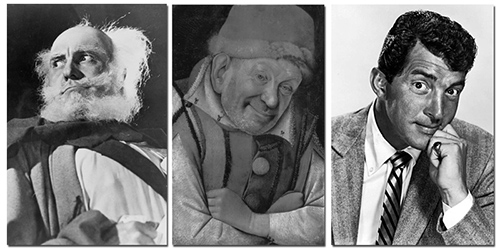Starr Goode
I cannot live without being in love. I consider that trio of beings, Falstaff, the Fool and Dino, friends who help me to live. Iʼve learned through them that it takes courage to rely on your own self, on your own instincts and delights. I started with a single word to sum up the essence of each of these beings: wit, freedom, ease; Falstaff, the Fool, Dino. And I perceive the archetype of the Fool as the foundational energy which sustains the personalities of the other two. Falstaff derives his wit from his freedom to express himself. He answers to no values other than his own, even if the whole social structure stands against him. Likewise, Dino's ease of being, his meta-relaxedness originates from a similar freedom to be himself. He simply doesnʼt care what others think. Jeanne says no one, nothing, impressed him deeply. He would come home from work; she in her wifeness would ask what happened today? "Oh, nothing," heʼd reply. Later she'd turn on the TV news, "The King and Queen of England visited Dean Martin today on his movie set."
We revere them because of this sense of freedom. They believe their lives belong to them. The blessing of life means to be free from a severity of conscience that kills the joy of things. Not for these liberated souls, the tyrannical authority of imposed rules of social conduct. Not for them, the paralyzing, suicidal guilt of the superego. They draw on the vitalizing spirit of play. Falstaff and Dino are performers, amusing themselves as well as others, Fools keeping the Royal Household entertained! By his superior intelligence and dazzling wit, Falstaff transforms the events of his life to public stories around the tavern fires and feasting tables. Dino, a man with innate intelligence and natural wit, as a singer, actor, comedian plays before the biggest audiences in the world. They love the pleasures of life: food, drink, women; capons, pasta fagioli; sherry sack, J&B scotch; Doll Tearsheet, Dinoʼs many romances.
Yet for all of that, they strike me as figures of solitude. The enigma of their personalities is a source of wonder. More has probably been written about Falstaff than any of Shakespeareʼs characters except for Hamlet. Dino too has outlived his own time through our continued fascination about his life and work. Even so, we canʼt “pluck out the heart” of their mysteries as Hamlet would say. Both are cool observers of human nature; they perceive truths which set them apart from the rest of us. Only Falstaff resists the empty rhetorics on the glory of war, and Dino knows that John F. Kennedy will abandon the Rat Pack the instant they are no longer of use to him. They manifest the strength of integrity; neither the Prince nor Frank Sinatra can make them go against themselves. For Falstaff and Dino approve of themselves, not in some puffed-up-ego, cock of the walk way, but with a self-acceptance, they enjoy their own stories and songs, take relish in their creative powers. Self-contained, they remain uniquely themselves and finally, unknowable.
